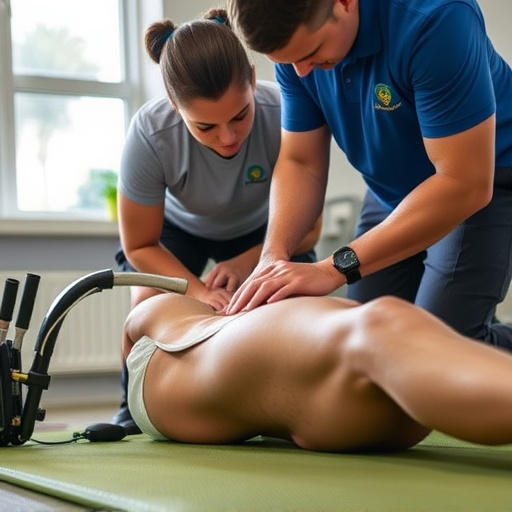Bring complete medical records and document incident details for an accident injury specialist evaluation. Prepare personal and insurance documents, and share full medical history for effective communication and targeted sciatica treatment options.
Preparing for your accident injury specialist evaluation is crucial for ensuring a comprehensive assessment. Before your visit, gather all medical records and reports related to previous or current injuries. Document the details of the accident, including dates, locations, and a description of how the incident occurred. Prepare personal information and insurance details to streamline the process. By having these documents ready, you’ll facilitate a more efficient evaluation, allowing the specialist to focus on your care.
- Gather Medical Records and Reports
- Document Accident Details and Injuries
- Prepare Personal Information and Insurance Details
Gather Medical Records and Reports

When preparing for an evaluation with an accident injury specialist, it’s crucial to bring along your complete medical records and reports. This includes any previous diagnoses, treatment plans, imaging results (such as X-rays or MRIs), and progress notes from previous healthcare providers. These documents provide a comprehensive overview of your health history, especially if you’ve experienced previous injuries or have been under the care of multiple specialists.
Having these records readily available allows the accident injury specialist to make accurate assessments, develop tailored treatment plans, and consider your overall wellness care. This is particularly important for conditions like sciatica or sports injuries that require specific expertise and may involve complex recovery processes. Ensure all documents are organized and up-to-date to facilitate a smooth evaluation process.
Document Accident Details and Injuries

Before your appointment with an accident injury specialist, take some time to meticulously document the details surrounding your incident. Note down exact dates, times, and locations, as well as any contributing factors that led to the accident. This information is invaluable for building a comprehensive case and ensuring accurate assessments of your injuries.
Additionally, keep a detailed record of your symptoms and any medical treatments you’ve received since the accident. Mention specific pain points, limitations in movement, or other physical impairments. This will help the specialist understand the extent of your injuries, especially if you’re dealing with conditions like a herniated disc or require muscle recovery and injury rehabilitation strategies.
Prepare Personal Information and Insurance Details

Before your accident injury specialist evaluation, take some time to prepare personal information and insurance details. Gather important documents such as your birth certificate, driver’s license, and any other identification cards. Additionally, ensure you have the contact information of your health insurance provider, policy number, and relevant policy details. This preparation will save you time during the consultation and help streamline the process.
Knowing your medical history is crucial for an accurate assessment. Make a list of any pre-existing conditions, previous injuries, or ongoing treatments, especially those related to sciatica or other neurological issues. If you’ve undergone functional rehabilitation or injury rehabilitation in the past, include that information as well. Being comprehensive in your preparation will facilitate effective communication with the specialist and potentially lead to better outcomes, including more targeted sciatica treatment if necessary.
When preparing for an evaluation with an accident injury specialist, ensure you bring all relevant medical records, detailed accounts of the incident, and essential personal and insurance information. These documents will play a crucial role in navigating the evaluation process, enabling the specialist to offer accurate assessments and tailored advice for your recovery journey.














